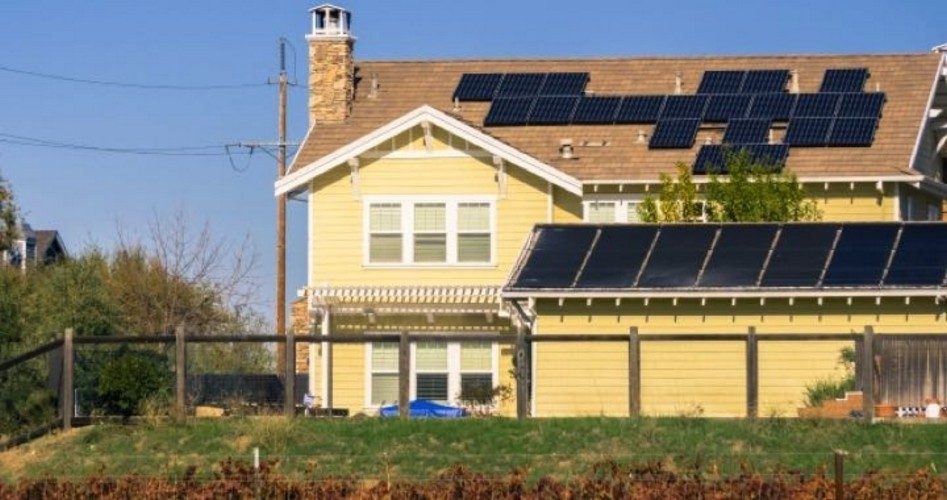
No other state in America has embraced the use of solar panels as a way of combating the menace of global warming like California. The Golden State has even mandated their inclusion on all new homes beginning in 2020, despite the fact that they can add up to $12,000 to the cost of building a house. This seems odd in a state with a serious homelessness problem driven partly by the cost of housing in the state.
But it’s for the climate, and Greta is upset, so what can you do?
However, with the recent rolling power outages brought on by high winds and the risk of wildfires in the state, California’s residents are finding out that many of those energy- and planet-saving solar panels don’t actually work during a power outage.
This is true because most panels are not designed to power the homes they are attached to — but to supply power to the electrical grid. Moreover, the panels attached to the power grid shut off for safety reasons when blackouts happen, according to Audrey Lee, the vice-president of energy services for Sunrun. “And that’s because in an outage, we wouldn’t want the power from the solar to flow back on the grid. If there was a utility employee working on that grid, that backflow power would be very dangerous for them.”
Even for solar panels designed to power a house, a battery back-up is necessary or solar panels are useless in a power outage. With a battery-connected system, excess power that the home produces charges the battery, which can then be used at night or during power outages. But the battery backup systems are expensive, generally running from $5,000 to $7,000 for a residential system. The largest U.S. rooftop solar supplier, Sunrun, Inc., says that hundreds of its customers are getting through the blackouts with the help of battery back-ups.
Sunrun chairman Ed Fenster expects battery sales to be brisk in the wake of the current outages. “It’s the perfect combination for getting through these shutdowns,” Fenster said.
Power shutdowns were initiated by Pacific Gas and Electric Company (PG&E) because, it claimed, high winds threatened to cause power lines to spark and cause forest fires. The outages affected nearly 800,000 customers in 34 counties in Northern California. The company claims that the shutdown prevented wildfires in the region. Power has since been restored.
California Governor Gavin Newsom puts the entire blame for the shutdown at the feet of PG&E. In a letter to the California Public Utilities Commission, Newsom wrote that the “scope and duration of this outage was unacceptable.” Yet California’s forest plans, which pretty much consist of doing nothing but letting the forest grow and become crowded with fuel for fires, is unjust.
The federal, state, county, and local governments share culpability for inadequate forest management, but Newsom said of the outages, “It was the direct result of decades of PG&E prioritizing profit over public safety.” In fact, Newsom and his administration could be said to be prioritizing fires above human safety.
Given California’s proclivity for wildfires, solar panels are an unusual choice for saving the climate. According to the Society of Fire Prevention Engineers, roof-mounted solar panels can create fire concerns: “One of the many dangers to solar panels is how the panel and its mounting system impact the combustibility of the overall roof system. Some solar panels, for example, include a backing of highly combustible plastic.”
In a fire-prone state, shouldn’t individuals be able to decide if they want a potential fire hazard installed on their roofs?
The 2020 solar panel mandate was created and implemented by the California Energy Commission — a group made up of unelected bureaucrats. Shouldn’t such a sweeping change to California’s building codes be made by an elected legislature, if not a referendum put to voters?
Newsom may be right about PG&E’s negligence, but he’s not helping matters by allowing the California Energy Commission to mandate the use of potential ignition sources all over the state.
Photo: Andrei Stanescu / iStock / Getty Images Plus




